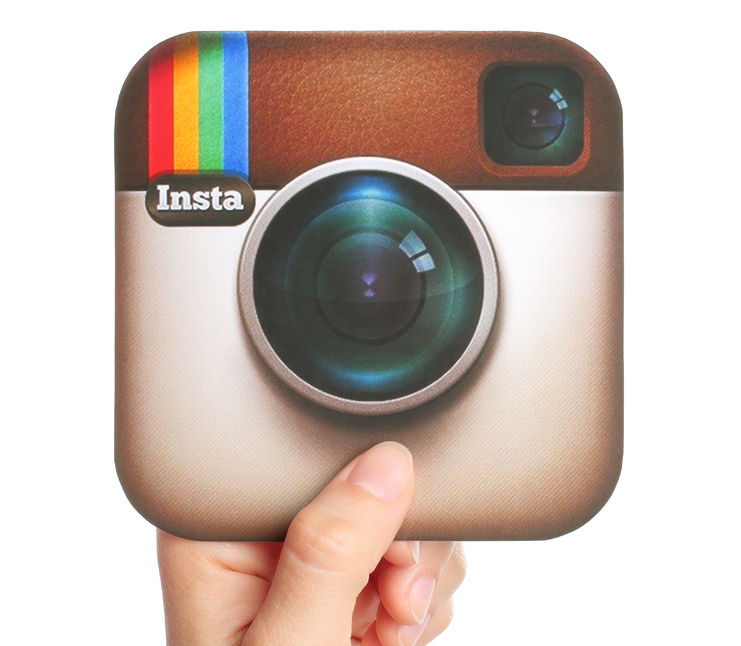If you’re tempted to dismiss Instagram as a marketing tool because it got its start as an app for sharing mobile photos, don’t. The truth is that Instagram marketing is on the rise, and the companies who use it reap significant benefits from their efforts there.
Instagram Statistics for Business
To begin, it may help to understand how big the potential rewards are for using Instagram as part of your marketing mix.
- As of the end of 2021, Instagram has over 1.393 billion actively monthly users. 800 million of those visit the site daily.
- Roughly 17.6% of all the people on Earth use Instagram today.
- As of 2021, 48.8% of all businesses were using Instagram for marketing purposes, a number that is expected to increase by nearly 50% by the end of 2022.
- Brands that use Instagram for marketing post an average of 4.9 times every week.
- 75% of all Instagram users take action – such as visiting a website, clicking a link, or making a purchase – after viewing Instagram marketing posts.
- Posts that include at least one hashtag perform 12.6% better than posts with no hashtags.
There is no question that marketing with Instagram offers a way for businesses to connect with existing and potential customers. The high level of engagement makes Instagram particularly effective for businesses to reach consumers directly.
Getting Started on Instagram
Do you want to get started on Instagram? Here’s a quick checklist to get you going.
- Download the Instagram app onto a mobile device. While you can view Instagram on a computer, you need a mobile device to upload content. You can download it from the Apple app store, Google Play, or the Windows App Store.
- Tap “Sign Up” to enter your email address, or else use Facebook to sign in.
- Choose a profile picture. Make sure to choose a clean and striking image that looks good as a thumbnail.
- Complete your bio. You have only 150 characters, so you may want to avail yourself of the vertical formatting option and use bullet points (or emoji) to describe who you are and what you do. Make sure to include the URL of your website since this is the only place you can include a clickable link.
Once you have completed these four simple steps, you’ll be set up and ready to start marketing with Instagram.
Building a Following
The next step is to build a following. Here are a few ideas to help you do that.
- Add an Instagram follow button to your website and blog
- Share a link to your Instagram feed on Facebook, Twitter, and any other social media sites you use for marketing
- Comment on Instagram posts shared by influencers in your industry or even by your fans
- Host a contest or promotion and make sharing your post a criterion for entry
- Share your Instagram posts on Facebook
- Comment on posts shared by other local businesses
The main thing you need to do to build a following is to increase your visibility. People might not know that you’re on Instagram. But if you share content regularly, keep it relevant, and comment wherever it’s appropriate, people will find you.
How to Use Hashtags Effectively
Like Twitter, Instagram allows the use of hashtags to help users find relevant content. Hashtag use is really an art form and it’s important for businesses who market on Instagram to use hashtags wisely. Here are some pointers that can help you.
- Join in on community events such as #ThrowbackThursday or #ManicMonday to make yourself part of the Instagram community. An example of a business throwback might be an early prototype of one of your signature products or a shot of your grand opening.
- Create a brand hashtag to use on all of your posts. Some companies simply use the name of their brand as a hashtag, but don’t be afraid to get creative with it. One example comes from candy company Kit Kat, who uses the #HaveABreak hashtag on all of their posts.
- You can highlight photos and content that’s especially important to you by tagging it with #PicOfTheDay or #PhotoOfTheDay hashtags.
It’s also a good idea to create campaign-specific hashtags for special promotions and contests. For example, if you wanted to sponsor a contest that asked your followers to take photos of themselves using your products, you might create a special hashtag to allow you to track entries – and to allow your fans to view all the entries easily.
One final note: you may want to check out trending hashtags and use them, but be cautious. It’s easy to come off as callous if you attempt to use certain hashtags as a way of promoting your products. For example, you can certainly post a patriotic photo with the #NeverForget hashtag on September 11th, but it would be a mistake to try to make such a post about your product.
Instagram Stories for Marketing
In late summer of 2016, Instagram added a new feature that’s ideal for marketing: Instagram Stories. It’s similar to a feature on Snapchat that allows users to add content (in this case, images or videos) that last for only 24 hours. The content doesn’t appear on your regular Instagram feed, but creating a story can be an effective way to connect with your followers.
- At present, stories appear to get priority, allowing companies a way to “beat” Instagram’s algorithms and connect with a significant percentage of their followers.
- Stories can be used to show the development of a product, give your followers a peek behind the scenes of your business, or provide coverage of a live event.
- Stories don’t allow regular commenting, but you can encourage the people who view your story to send you a direct message to ask a question or encourage them to visit the link in your bio.
- You can pick a single image from your story and post it on your regular feed to attract traffic to your story.
Instagram stories provide a fun and unique way to engage followers and drive traffic to your website. Many businesses have yet to adopt Instagram Story as part of their marketing strategy, but you can be an early adopter and reap the benefits right now.
Conclusion
Instagram might have started as a fun mobile app, but it has turned into an extremely valuable and powerful marketing tool for companies that know how to use it. If you create a compelling profile, use hashtags appropriately, and take advantage of new options like Instagram Stories, you can use Instagram to build brand awareness and attract new customers.




